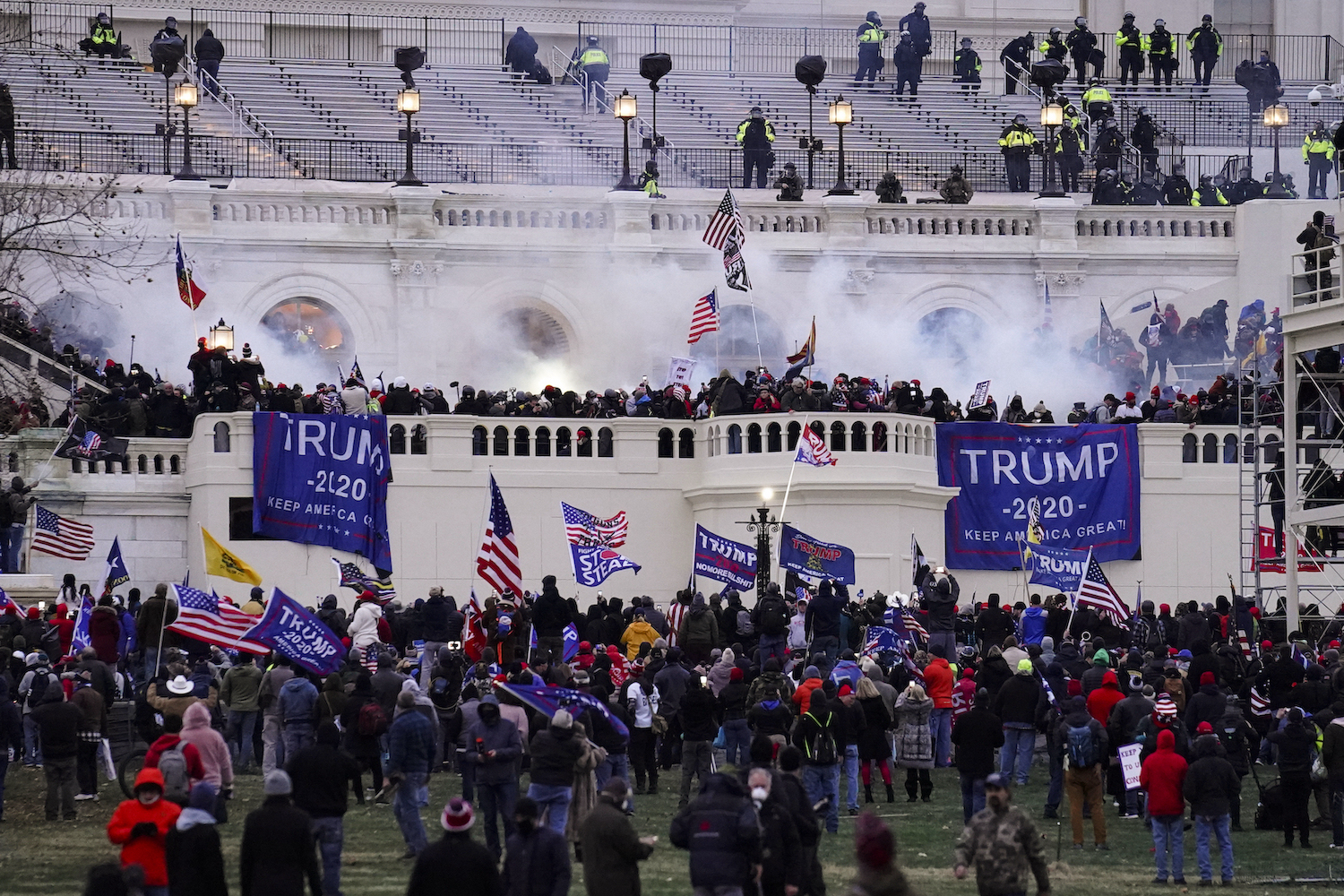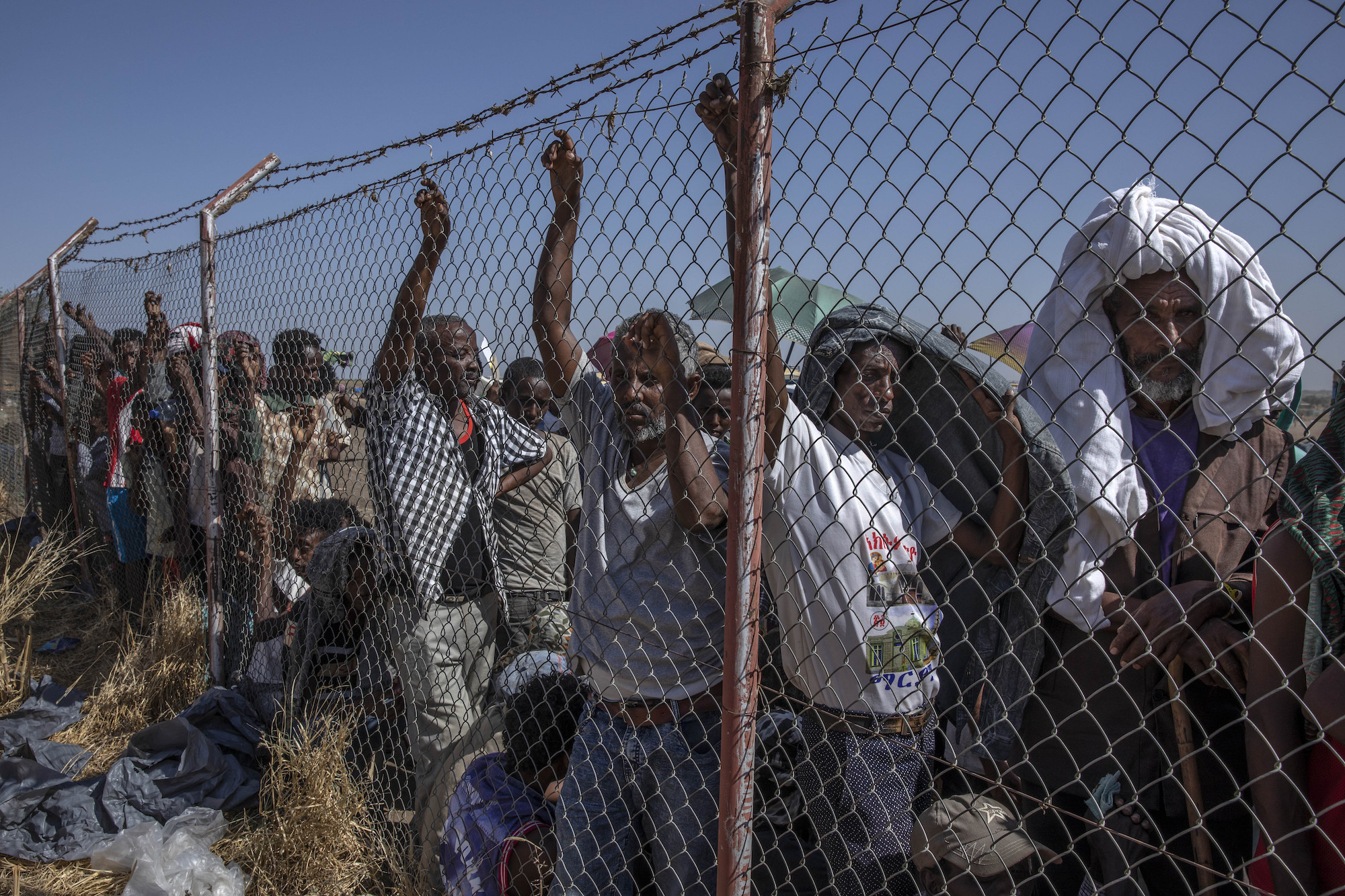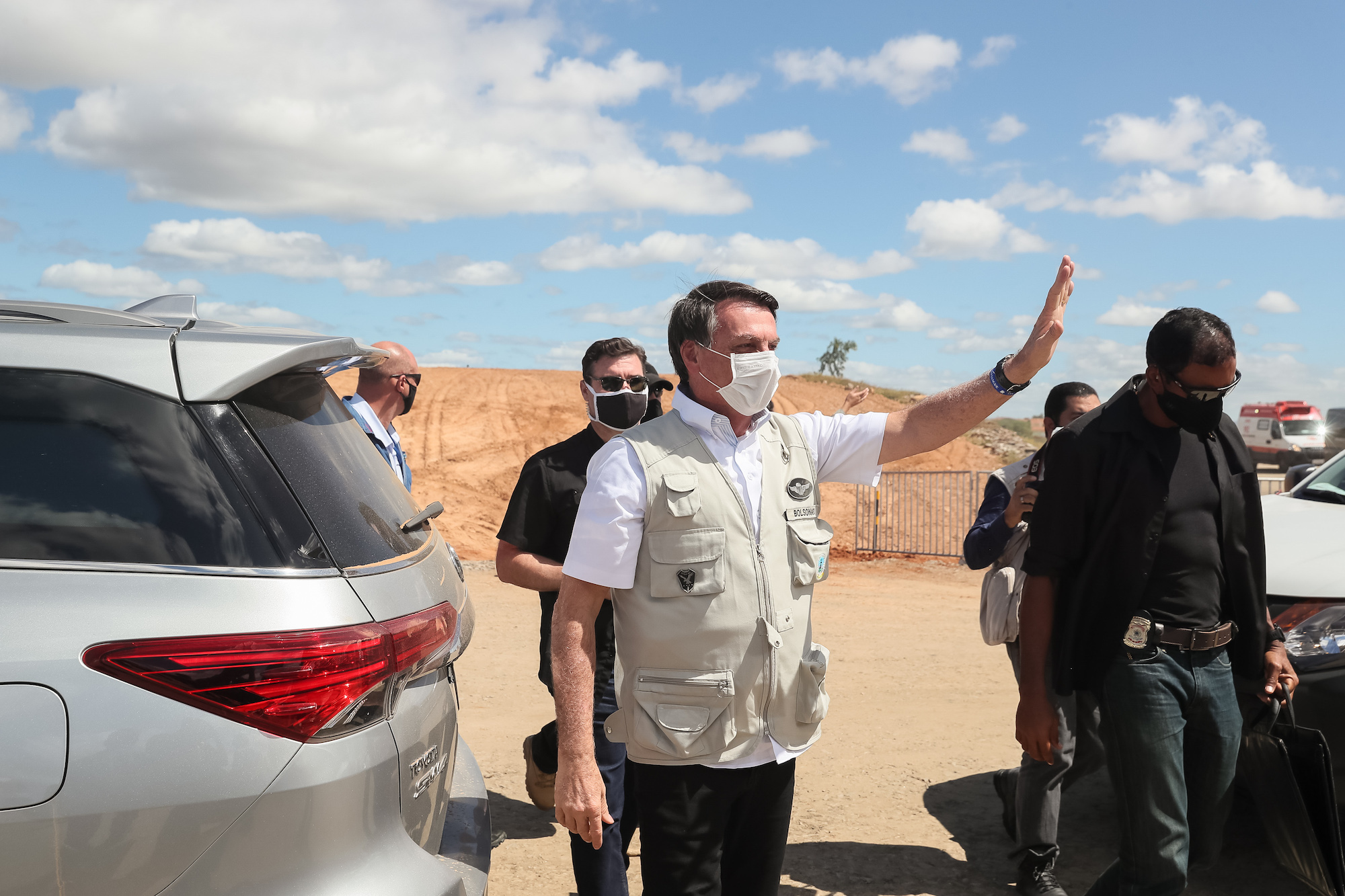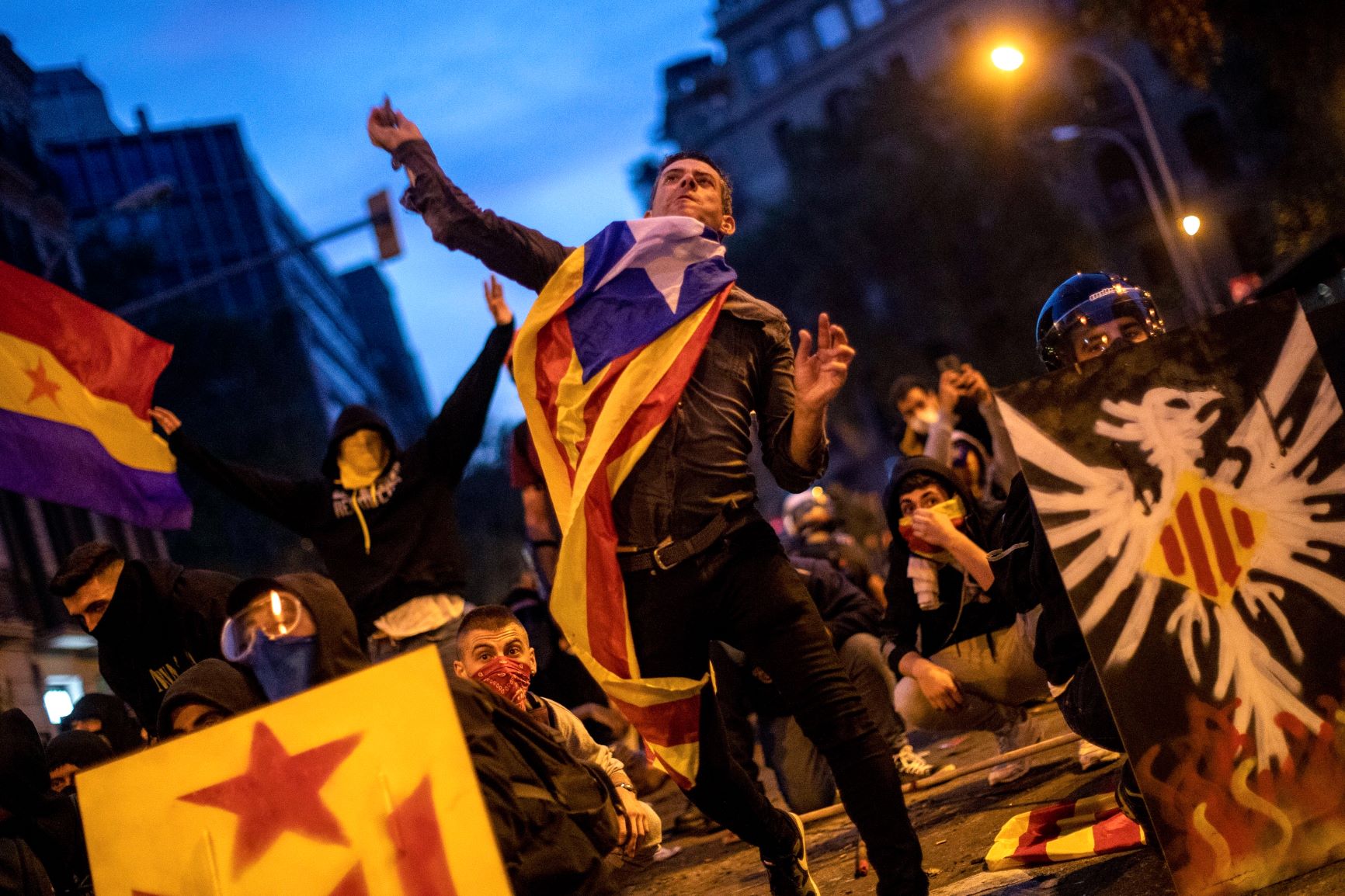France’s new global security bill—passed by the National Assembly on Nov. 24—sparked nationwide protests for the controversial Act 24 that would create a new criminal offense for publishing images of police officers.
If implemented, the new law would make it a crime to publish images of on-duty officers “with the aim of damaging their physical or psychological integrity” and offenders could face up to one year in prison and/or a maximum of a €45,000, or $53,000, fine.
According to AP News, French President Emmanuel Macron’s government stated the law is necessary “to protect police amid threats and attacks by a violent fringe.” Critics argue that the bill would only be used to suppress freedoms.
“There are already laws that exist to protect civil servants, including police forces when they’re targeted, and it’s legitimate—the police do a very important job,” said Luc Bronner, the chief editor of French newspaper Le Monde. “But that’s not what this is about. It’s about limiting the capacity of citizens and along with them, journalists, to document police violence when they happen.”
133,000 people reportedly took to the streets of France—including 46,000 in Paris—on Nov. 28 after a video surfaced showing police officers beating Black music producer Michel Zeclar.
The incident, which is currently under investigation, provoked more critiques on the bill due to the fact that some say it will make it more difficult for journalists to report on police brutality and racial violence.
In a Facebook post, Macron denounced the actions seen in the video, stating, “France should never let hate or racism prosper.”
“There were all those protests in the summer against police violence, and this law shows the government didn’t hear us… It’s the impunity,” protest participant Kenza Berkane said. “That’s what makes us so angry.”
According to BBC, some protesters threw stones and fireworks at police cars while others set cars and newspaper kiosks on fire that led to arrests. Police were seen deploying teargas at protesters.
“Thirty-seven police officers and gendarmes were injured during the demonstrations, according to provisional figures. I once again condemn the unacceptable violence against the security forces,” Interior Minister Gérald Darmanin wrote on Twitter.
Photojournalist Ameer Alhalbi was allegedly injured by police while covering the Saturday protests in Paris, adding to critiques from journalists.
In response to criticisms and protests, Prime Minister Jean Castex said that the measure would be amended as to specifically not “impede the freedom of information.”
“The bill will not jeopardise in any way the rights of journalists or ordinary citizens to inform the public,” said Alice Thourot, an MP for Macron’s La République En Marche (LREM) party and the co-author of the clause, to French daily Le Figaro. Article 24 would “outlaw any calls for violence or reprisals against police officers on social media—and that only,” Thourot said.
Even with clarifications and possible changes, some critics contend that it is not enough.
“If people cannot film anything in the streets when the police may sometimes have an illegal use of force it’s a very worrying message to send,” said Cecile Coudriou, president of Amnesty International France, according to CNN.
“On one hand, citizens are asked to accept the possibility of being filmed under the pretext that they have nothing to fear if they have done nothing wrong. And at the same time the police refuse to be filmed, which is a right in every democracy in the world.”
According to AP News, Emmanuel Poupard, secretary general of the National Journalists Union, argued the bill “has only one goal: to boost the sense of impunity of law enforcement officers and make invisible police brutality.”
The UN Human Rights Council stated the proposed bill “could discourage, even punish those who could supply elements of potential human rights violations by law enforcement, and provide a sort of immunity.”
The group, Stop Loi Sécurité Globale or Stop Global Security Law, is “composed of journalists’ unions, human rights NGOs and other groups,” according to CNN. The group is pushing for the removal of articles 21 and 22 of the bill, which “organize mass surveillance,” in addition to article 24.
They also are speaking against the “New National Policing Scheme,” announced in September by Minister of Interior Gerald Darmanin, that would require journalists to disperse when ordered to by the police which could inhibit their ability to cover the aftermath of protests.
“We are not here to defend a privilege of our profession, press freedom and journalists’ freedom,” Edwy Plenel, co-founder of Mediapart, said. “We are here to defend fundamental rights, the rights of all people.”
Other critics of the law worry that the new bill is just another step toward more repressive tactics such as Macron’s plan to crack down on radical Islam.
“An authoritarian regime is installing itself,” said Jean-Luc Mélenchon, leader of the left-wing France Unbowed party, before Parliament. “The first liberty the citizen should benefit from is the control of those who exercise authority.”






